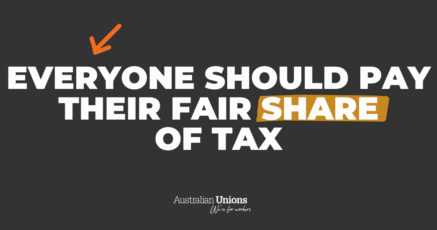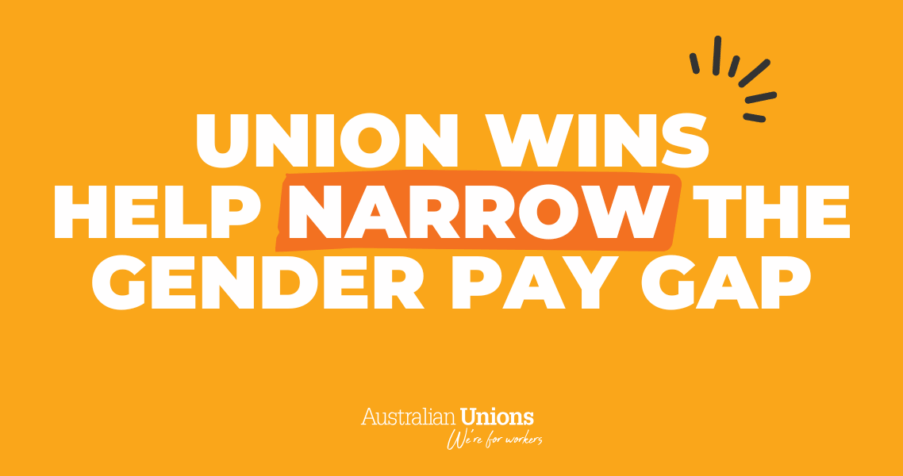Should electricity be publicly owned?
When ACTU Secretary Sally McManus posed this question to her 121,000 Twitter followers the other day, the overwhelming response was an unequivocal “Yes”.
Privatisation first sunk its teeth into the Australian energy sector in the mid-1990s – one of many casualties as a result of sweeping neoliberal policies across the Western world. Twenty-five years on, the entire sector has almost wholly fallen into the hands of privatisation and the consequences have been dire.
Exorbitant power bills, supply disruptions and mind-numbingly frustrating inefficiency from these private companies have been the outcome of what economist John Quiggin has called a “failed experiment”.
Electricity is an essential service and the only way we can make it efficient, fair and accessible again is to return it to the public sector.
What is privatisation and why is it so bad?
‘Privatisation’ is somewhat of a blanket term that takes many shapes and forms – but you know it when you see it. Simply put, entities and services that were once wholly publicly owned and regulated have made a gradual shift towards the private sector. That is to say, private for-profit companies can wholly or partly own these assets or provide outsourced contract services to the public.
One example is Australia’s public Medicare system that ensures everyone can have access to health services. Medicare is such a well-known and well-loved institution today it is easy to forget that a national public healthcare system hasn’t always existed. In fact, it was something union members had to campaign for.
Despite frequent threats to privatise Medicare from previous Liberal-National governments, union members have come together and fended off these attacks. The last thing working Australians need is a completely unaffordable healthcare system like what we see in the United States.
The profit incentive of wholly or partially privatised companies has undoubtedly worsened the burden for the community. We see it with public transport, infrastructure and significant parts of our healthcare system. I’m sure I’m not alone in that feeling of resentment every time I am forced to cough up $4-$5 to ride a tram or drive on a tollway.
Alongside higher costs, there is also corporate inefficiency in these privatised assets. We saw this during the contact tracing crisis in the pandemic. Personnel assigned the task of chasing this rampant virus were outsourced, private employees who simply couldn’t keep up with the demand set by government and were conflicted by the profit motive.
All of these problems and more have manifested within the failed private energy sector. The mess we’re now in comes as a result of private energy companies profiteering through jacking up prices, gaming the market and under-investing in maintenance and infrastructure, making energy distribution a never-ending debacle.
The standard price of $50 per megawatt hour suddenly skyrocketed to $15,100. The result? Constant blackouts and soaring power bills for working Australians all across the east coast.
How do we solve this?
Returning the energy sector into the hands of the government is a clear solution to this current energy crisis.
In the short term, the best hope we have for renewable, affordable and reliable power in this country is a national regulatory framework that will keep corporate profiteering in check and put people first.
What do unions have to do with energy privatisation?
Everyone needs to use energy. But because it’s not publicly owned, the exorbitant bills that workers are paying are just making CEO’s richer, as they get to profit off the inelasticity of demand, while workers suffer under the increasing cost-of-living burden.
And the best way to lessen that burden, is by increasing wages to at least keep up with the cost of living. Which is why the Australian union movement recently pushed for an increase to the minimum wage – and won.
It’s also why unions use collective bargaining, recovering stolen wages and rectifying under-classifications to protect and improve workers’ pay, rights and working conditions. And it works – workers who are union members, on average, earn more than non-members.
When everyday people come together, we have the power to build a better, fairer society, and an economy that supports working people and our communities.






SHARE:
A nationalised energy sector is the only way to put consumers first